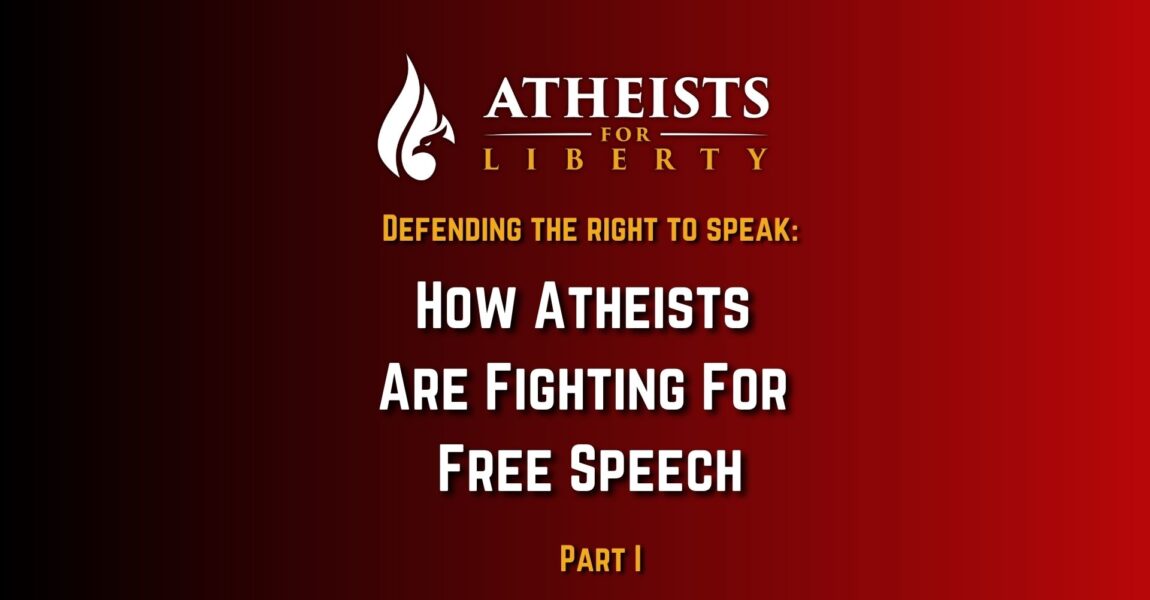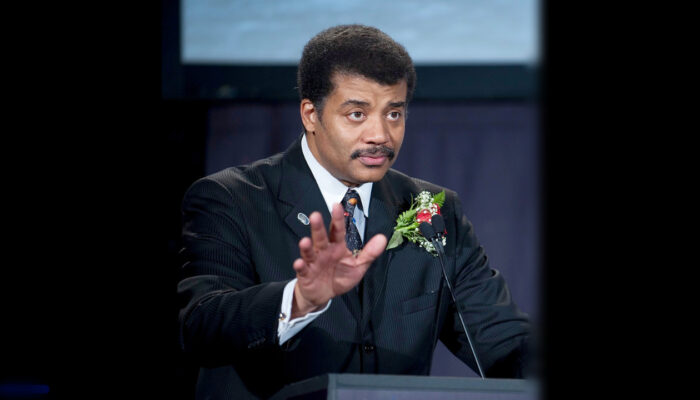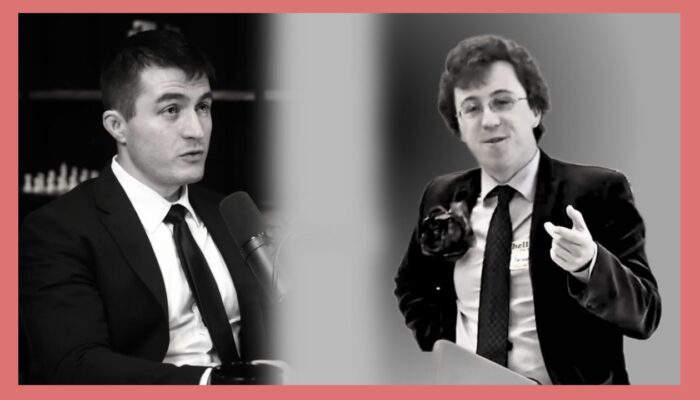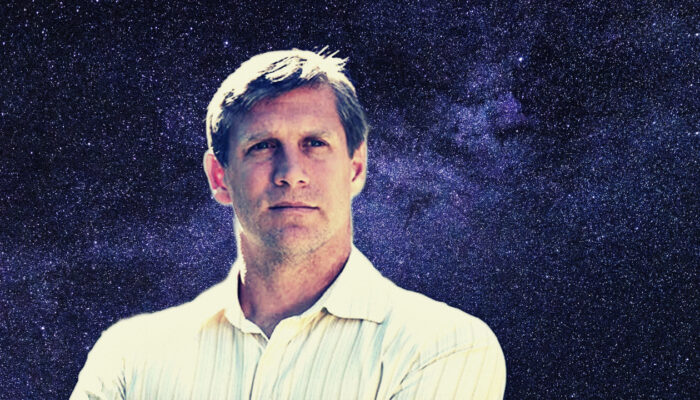
Defending the Right to Speak:
How Atheists are Fighting for Free Speech (Part I)
In a world where exchanging ideas and opinions is becoming increasingly polarized, the right to free speech is controversial. For atheists, expressing dissenting opinions and challenging prevailing beliefs is especially important. Despite facing censorship, boycotts, and even death threats, prominent atheists are continuing to speak out, defending free speech. How are atheists fighting for the right to free speech? From advocating for the separation of church and state, to using social media, as well as dealing with cancel culture.
The history of atheism and free speech: How have atheists advocated for the right to speak freely throughout history?
Throughout history, atheists have been facing persecution and censorship for their beliefs. However, many prominent atheists are fighting for the right to speak freely. They’re also playing a crucial role in advancing the cause of free speech.
Famous atheist speakers who have been censored: What are some examples of well-known atheists who have been censored or faced backlash for their views?
Over the years, numerous prominent atheists have faced censorship and backlash for expressing their views. These individuals have often been at the forefront of discussions around the role of religion in society. Their outspoken views on atheism and religion have made them controversial figures.
One of the most well-known examples of an atheist speaker who has faced censorship is Richard Dawkins. Dawkins is a biologist and author of several books including “The God Delusion.” He has been the target of protests, boycotts, and even death threats due to his criticisms of religion. In 2011, his planned appearance at a science festival in the United States was canceled after organizers received threats of violence. Dawkins has also been disinvited from speaking engagements at universities and other institutions due to his views on religion.
Sam Harris, another prominent atheist speaker, has also faced censorship and backlash for his views. Harris is a neuroscientist and author of several books including “The End of Faith.” He has been criticized for his criticisms of Islam and his support for controversial ideas such as profiling in airport security. In 2018, a planned event featuring Harris and fellow atheist speaker Douglas Murray was canceled after the venue received threats of violence.
Salman Rushdie, an author known for his controversial novel “The Satanic Verses,” has also faced censorship and death threats. The threats are due to his criticisms of religion. Rushdie was the target of a fatwa issued by Iran’s Ayatollah Khomeini in 1989, calling for his assassination. Rushdie was forced into hiding for several years. This caused significant personal and professional challenges as a result of the controversy surrounding his book.
In defense of free speech
Despite the censorship and backlash, many prominent atheist speakers face are continuing the fight, speaking out and defending free speech. These individuals believe that expressing controversial or unpopular views is crucial for progress and advancing knowledge. They also argue that marginalized communities, who face significant challenges in expressing their views, need the protection of free speech.
The challenges facing prominent atheist speakers show that defending free speech remains difficult. Some people want to limit or censor speech they disagree with, despite many supporting the right to free speech. The fight for free speech and the ability to express dissenting opinions is complex and ongoing. It is likely to be a topic of debate and discussion for years to come.
The intersection of atheism and free speech: Why Is the right to free speech particularly important to atheists, and how does it intersect with their beliefs?
For Atheists, free speech is crucial. They believe it’s vital to challenge prevailing beliefs and advance knowledge. But expressing their views can be tough. They may face persecution or discrimination due to their lack of belief in a higher power.
The role of social media in the fight for free speech: How have social media platforms impacted the ability of atheists to express their views freely, and what are some current debates around this topic?
With social media platforms revolutionizing the way people communicate and exchange information, they’re becoming a critical tool for advocating for the right to free speech. Atheists, in particular, have found social media platforms to be an essential tool for connecting with like-minded individuals, sharing ideas, and challenging prevailing beliefs. Social media provides a platform for atheists voicing their opinions, sharing their experiences, and pushing back against religious dogma and discrimination.
So its clear that social media platforms are changing how people communicate and share information. For some, they’re becoming vital in advocating for the right to free speech. Atheists are finding social media to be essential for connecting with others, sharing ideas, and challenging established beliefs. Through social media, atheists are expressing their opinions, sharing experiences, and pushing back against religious dogma and discrimination.
Social media and content moderation
But social media platforms have a problem: they’re not transparent about how they’re deciding what content they’re keeping and removing. This is worrying a lot of people. Some people are starting to think that social media companies have too much control over what people are saying. Some people are saying that the algorithms social media companies are using can make existing biases worse by promoting some ideas more than others.
Even though there are worries, social media is important for atheists and free speech advocates. Social media is helping people whose voices aren’t usually heard. It is bringing people together who are working on important issues, like free speech and human rights. As social media changes, we need to make sure we keep holding these platforms responsible. We need to keep fighting for the right to free speech, both online and offline.
The impact of blasphemy laws on atheism and free speech: What are blasphemy laws, and how do they affect atheists who speak out against religion?
Blasphemy laws are laws that prohibit the criticism or mockery of religious beliefs. These laws can have a significant impact on atheists, who may face legal repercussions for expressing their lack of belief in a higher power. Blasphemy laws can also have a chilling effect on free speech more broadly, as individuals may self-censor in order to avoid running afoul of these laws.
The relationship between atheism, free speech, and religion: How does the right to free speech intersect with the religious beliefs of others, and what are some potential conflicts that can arise?
The relationship between atheism, free speech, and religion is complex and multifaceted. While some religious individuals may view atheism as a threat to their beliefs, many atheists argue that the right to express dissenting opinions is essential to a healthy democracy. This can lead to tensions between religious and non-religious individuals, and can also impact the broader conversation around free speech.
The legal implications of defending free speech as an atheist: What are some legal challenges that atheists may face when advocating for the right to speak freely, and how can they navigate these challenges?
For atheists, advocating for the right to free speech can have legal implications. In some cases, individuals may face legal repercussions for expressing their views, particularly if they are critical of religious beliefs. This can make it difficult for atheists to speak out without fear of reprisal.
The importance of defending free speech for marginalized communities: How does the fight for free speech intersect with other social justice issues, and what are some ways that atheists can support marginalized communities in this fight?
For marginalized communities, the right to free speech can be especially important. This can include communities that have historically faced discrimination or persecution, such as the LGBTQ+ community, people of color, and religious minorities. As such, defending the right to free speech can be a way for atheists to support these communities and fight against oppression.
The impact of cancel culture on atheism and free speech: What is cancel culture, and how does it affect the ability of atheists to speak freely about their beliefs?
Cancel culture is becoming an increasingly controversial topic. While some are arguing that cancel culture is a necessary tool for holding individuals accountable, others are arguing that its threatening free speech. Cancel culture typically involves boycotting or shunning individuals who express controversial or unpopular views. This can take many different forms, from social media campaigns to organized boycotts of businesses or individuals.
Cancel culture: Is it necessary?
Proponents of cancel culture argue that it is a necessary tool for holding powerful individuals and institutions accountable for their actions. They argue that cancel culture represents a form of collective action that can be used to pressure those in power to change their behavior or face the consequences. For example, when a celebrity makes a racist or sexist comment, cancel culture can be used to pressure them to apologize, donate to a relevant cause, or face a loss of social status and endorsements.
However, critics of cancel culture argue that it represents a threat to free speech and the free exchange of ideas. They’re arguing that cancel culture is being used to silence individuals with unpopular or controversial views. This is leading to a culture of fear and self-censorship. In some cases, cancel culture has been causing individuals to get fired from their jobs, ostracizing them from their communities.
The challenge of free speech, atheists, and cancel culture
For atheists, cancel culture can be a particularly challenging issue. Atheists often hold views that challenge prevailing beliefs, and as such, they may be more likely to face criticism and backlash for expressing their opinions. Cancel culture can make it challenging for atheists to express their views freely without fear of repercussions, leading to self-censorship and a lack of diversity of thought.
In conclusion, cancel culture is a complex and controversial issue that has become increasingly relevant in recent years. While cancel culture can be a powerful tool for holding individuals and institutions accountable for their actions, it can also represent a threat to free speech and the free exchange of ideas. For atheists, cancel culture can be a particularly challenging issue, making it all the more important to defend the right to free speech and the free exchange of ideas.
The future of atheism and free speech: What are some current trends in the fight for free speech among atheists, and what are some potential future developments?
The fight for free speech among atheists has been ongoing for decades, and the landscape is constantly changing. One trend that has emerged in recent years is the increasing use of social media platforms as a tool for advocating for free speech. Atheist individuals and organizations are using platforms like Twitter and Facebook to connect with like-minded individuals, share ideas, and challenge prevailing beliefs. Social media has provided a powerful platform for nonbelievers to amplify their voices and fight for the right to express their views freely. This trend is likely to continue as social media continues to grow in popularity and influence.
Another trend in the fight for free speech among atheists is the growing public acceptance of atheism and non-belief. In the past, atheism was often stigmatized and associated with immorality or lack of patriotism. However, in recent years, the number of people who identify as atheists or agnostics has been steadily increasing. As a result, atheism and non-belief are becoming more normalized and accepted in mainstream society. This shift in attitudes may lead to greater tolerance and support for free speech among nonbelievers.
Challenges to the fight for free speech among atheists
The fight for free speech among atheists could face challenges in the future. One challenge is that governments are increasingly surveilling and regulating online speech. Governments around the world worry about cyberbullying, hate speech, and fake news, so they may try to control online speech more strictly. This could mean that nonbelievers and other marginalized groups might not be allowed to speak freely. Another challenge is that social media companies are accused of censoring and deplatforming people by taking away their ability to share or post certain things.
The fight for free speech among atheists
Promoting knowledge, progress, and social justice is why fighting for free speech is crucial for atheists. Nonbelievers need to keep pushing back against censorship and discrimination so they can keep speaking their minds freely. It’s not just about protecting their rights, but also about defending the fundamental principles of democracy and freedom of thought. If atheists and free speech advocates start working together, they’ll ensure that everyone can speak their minds freely.
Looking towards the future…
In conclusion, fighting for free speech among atheists is an ongoing battle that is crucial for promoting progress and advancing knowledge. Despite facing censorship, backlash, and discrimination, atheists continue defending the right to express dissenting opinions and challenging prevailing beliefs. Using social media, public advocacy, and legal action, we’re making our voices heard, standing up for free speech and liberty. Looking towards the future, it is important to remain vigilant in protecting the right to free speech. Also important, is embracing the diversity of ideas and beliefs that are making our society strong. By defending the right to speak, atheists are not only advancing their own cause but are also contributing to a more open and just society for all.
Are you an atheist who has faced censorship or backlash for expressing your views?
Share your story with us and join our community of individuals who are fighting for the right to express dissenting opinions and challenge prevailing beliefs.
Check out Atheists for Liberty on Facebook, Instagram, Twitter, Gettr, Parler, and YouTube.
Sources:
American Atheists. (2021). Defending the First Amendment: American Atheists’ work for freedom of
speech and expression. Retrieved from https://www.atheists.org/activism/defending-the-first-amendment/.
Chomsky, N. (1992). Necessary Illusions: Thought Control in Democratic Societies. South End Press.
Dawkins, R. (2006). The God Delusion. Houghton Mifflin.
Harris, S. (2004). The End of Faith: Religion, Terror, and the Future of Reason. W. W. Norton &
Company.
National Secular Society. (2021). Free Speech. Retrieved from https://www.secularism.org.uk/free-speech.html.
Rushdie, S. (1988). The Satanic Verses. Viking.
United Nations. (1948). Universal Declaration of Human Rights. Retrieved from https://www.un.org/en/universal-declaration-human-rights/.
Volokh, E. (2015). Freedom of Speech and Its Limits. Foundation Press.
Williams, B. (2018). Free Speech: And Why It Matters. Penguin Books.
Wistrich, R. S. (1991). Antisemitism: The Longest Hatred. Methuen


